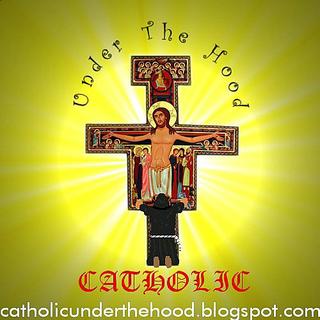The Sacramentality of the Lion, The Witch, and The Wardrobe
 Let me preface this post by saying that it contains information which may make watching the movie - The Lion, The Witch, and The Wardrobe less enjoyable if you have not seen the movie or read the book. So if you don't wish to have part of the plot spoiled, please read the book and/or see the movie before reading the rest of this post.
Let me preface this post by saying that it contains information which may make watching the movie - The Lion, The Witch, and The Wardrobe less enjoyable if you have not seen the movie or read the book. So if you don't wish to have part of the plot spoiled, please read the book and/or see the movie before reading the rest of this post.Having finally seen the Lion, the Witch, and the Wardrobe - I was struck not only by the Christian imagery, but also by some strong Catholic imagery.
The movie presents a really good theology of the Sacrament of Confession in the encounter between Edmund and Aslan after Edmund is freed from the White Witch. Edmund made poor choices and even though he had suffered for those choices, he still needed to approach Aslan [Christ] to really be brought back into the community. When his encounter with Edmund is finished, Alsan tells the other children that the events of the past were not to be brought up again. Aslan had forgiven Edmund and that is the end of the matter.
However, forgiven sin still has consequences - Edmund's actions had caused pain to many others and the White Witch tries to claim Edmund as hers by right. It is only by Aslan willing to take upon himself Edmund's punishment that truly removes any claim that evil may have upon Edmund and Edmund's willingness to atone for his past misdeads through acts of virtue that truly address those consequences.
In the same way, sin in Catholic theology creates a rupture between the sinner and God - between the sinner and the Church. To repair that rupture, the sinner comes before Christ to hear the words of the priest, "Your sins are forgiven". To know that because Christ forgives the sinner - no one will mention the past wrong again. But as the forgiven sinner knows, the past deed can continue to have effects - Christ has freed us from any claim evil may have upon us through his sacrifice but we are still called to make amends for past wrongs through repentence and conversion. This repentence and conversion is not a punishment - instead it is a grace making us more into the persons that we have been called to be just as Edmund's conversion helps make him into the person who can be called king.
As the movie demonstrates, confession is a means of healing - not a means of punishment.










0 Comments:
Post a Comment
<< Home